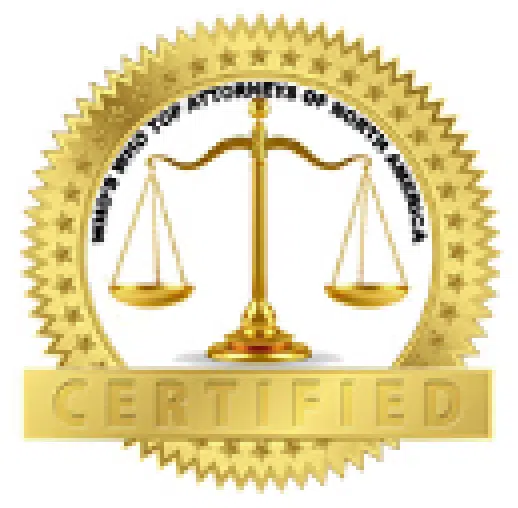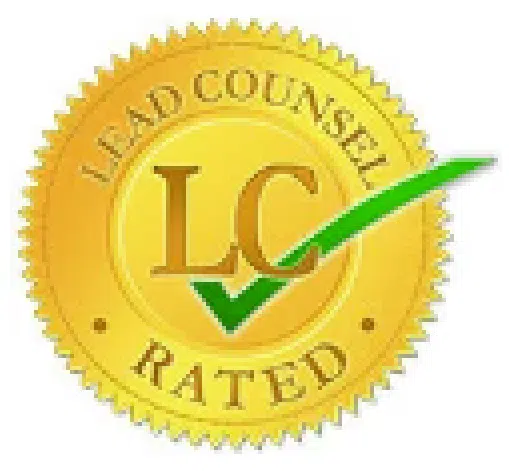Guide to Driving With Epilepsy
Epilepsy causes seizures that can pose a risk for drivers and other road users. Depending on a person’s epilepsy diagnosis and the condition’s severity, they may have their driving privileges restricted. In some cases, the state will deny a driver’s license altogether. However, state laws do vary when it comes to driving with epilepsy, requiring the attention of an attorney to determine whether you can legally operate a vehicle if you suffer from epileptic seizures.
Laws and driving restrictions for people with epilepsy are meant to protect all road users and prevent accidents caused by seizures. If you or a loved one have epilepsy, our experienced attorneys at Chopra & Nocerino are here to address your questions and concerns regarding seizure driving laws and what you can do to stay safe. Contact us online or call (855) NYC-HURT to schedule your free consultation.
What Is Epilepsy?
Epilepsy is a neurological disorder that causes abnormal electrical activity in the brain. These electrical surges result in unprovoked seizures that can change the way a person moves or behaves.
Epileptic seizures are recurring and may significantly affect a person’s daily life, including their ability to work, drive, and maintain interpersonal relationships. Getting an epilepsy diagnosis and treatment can help people with this condition control their seizures and have a better quality of life.

What Are the Causes of Epilepsy?
While there are different causes for epilepsy, many cases of recurring seizures are difficult to trace. However, doctors can evaluate risk factors to identify the root cause of epilepsy in many patients. Common causes include:

Genetics
Some people suffer from genetic epilepsy after inheriting genes that cause seizures. Families with a strong history of epilepsy are more likely to have children who develop epilepsy during childhood. The higher the number of seizure-causing genes a person inherits from their parents, the higher that person’s risk of developing epilepsy.
While it’s clear that you can inherit epilepsy, uninherited gene changes can also lead to epilepsy. Additionally, environmental factors may also lead to genetic seizure development.
Head Injuries
A traumatic brain injury (TBI) or other type of head injury may damage the brain structure and increase the risk of seizures. In fact, seizures occur in between 1 and 5 of every 10 people who experienced a TBI. Depending on the head injury’s location and severity, victims may suffer from:
- Early post-traumatic seizures – A seizure within the first week following a brain injury.
- Late post-traumatic seizures – A seizure that happens a week or more after a brain injury.
- Epilepsy – Having more than one seizure after a TBI.
Epilepsy can result from different types of head injuries, including bullet wounds, internal brain bleeding, subdural hematomas, or injuries requiring brain surgery. Because medical treatment for brain injuries can be prohibitively expensive, speak with our experienced brain injury lawyers to seek compensation if a preventable accident caused your head or brain injury.

Infections
Serious infections in the central nervous system or brain, such as neurocysticercosis, cerebral malaria, bacterial meningitis, and viral encephalitis, can also cause epilepsy. These infections trigger an inflammatory response that can damage the brain and cause recurrent seizures. Infections are the most common cause of epilepsy, especially in developing countries.
Most seizure-causing viral, bacterial, and fungal infections are preventable. However, lack of resources, medical infrastructure, and access to care are strong risk factors for developing infections that ultimately lead to epilepsy.
Autoimmune Epilepsy
When the body’s immune system targets healthy cells, including brain cells, it can cause autoimmune epilepsy. People who suffer from autoimmune epilepsy may experience:
- Focal seizures
- Facial brachial dystonic seizures that affect the same side of the face and arm
- Failed seizure medication treatment
- Changes in personality, mood, behavior, or memory
Stroke
Strokes that cause bleeding in the brain or serious brain damage are often connected to epilepsy. The Centers for Disease Control and Prevention reports that about 7 percent of people who have a stroke develop epilepsy within the following 30 months. Stroke-related epilepsy is typically treatable or controllable with anti-seizure medication.
Dementia or Alzheimer's Disease
Research has established a link between dementia and epilepsy. Data shows that the longer a person has Alzheimer’s disease, a common type of dementia, the more likely they are to suffer from epilepsy. People with Alzheimer’s disease may even experience seizures before they have memory problems.
Metabolic Epilepsy
Another common cause of epilepsy is metabolic abnormalities. When the body does not break down food normally, it can affect how organs function, which may lead to serious issues. For example, if the brain is affected by a metabolic disorder, patients may have recurring seizures from the imbalance.
Who Is Affected by Epilepsy?
Epilepsy affects more than 50 million people across the globe, with 1.1 percent of U.S. adults living with this condition. According to the Epilepsy Foundation, 1 in every 26 people develop epilepsy in their lifetime. While anyone can have epilepsy, some people have a higher risk of suffering from epileptic seizures, including:
Seniors
Of the nearly 2.9 million adults with epilepsy, about 1 million are older than 55. In other words, about one-third of all adults living with epilepsy are 55 or older. Older adults are more likely to suffer from epilepsy due to their increased risk of developing:
- Alzheimer's disease and dementia
- Strokes
- Falls that cause head injuries
- Diseases and infections that affect the brain
Infants and Children
Epilepsy is the most common type of childhood brain disorder, affecting about 470,000 children in the United States. Additionally, one study found that infants are more prone to epilepsy if they have a:
- Traumatic brain injuries at birth
- Premature birth
- Low birth weight
- Low Apgar score
Head Injury Patients
Traumatic brain injuries can lead to inflammation, scarring, and impaired brain function that causes seizures. Seeking treatment and working with a skilled health care professional can ease symptoms.
What Are the Symptoms of Epilepsy That Can Affect Driving?
If a person has an epileptic seizure while driving, it can lead to serious accidents and injuries for everyone involved. Here are epilepsy symptoms that may impair a driver’s ability to maintain safety.
Generalized Seizures
Generalized seizures are often severe episodes that may cause:
- Loss of consciousness
- Spasms or stiffness
- Involuntary muscle contractions
- Shaking or jerking motions
- Going limp or collapsing
A motorist experiencing these symptoms can lose control of their vehicle and hit other drivers, pedestrians, bicyclists, and other road users.
Focal Seizures
People with epilepsy could also have focal seizures, which only affect one side of the brain and body. Although these seizures are typically less severe than generalized seizures, they can cause:
- Auras and other visual impairments
- Involuntary twitching in the face, hands, or toes on one side of the body
- Repetitive movements
- Changes in sensory function
- Changes in emotions or mood
- Cognitive impairment
While a driver may remain conscious during a focal seizure, these symptoms can make it difficult to maintain control of their vehicle and stay safe on the road.
Is It Safe To Drive With Epilepsy?
Driving with epilepsy can be dangerous if seizures are not controlled using medication or other medical treatments. Research shows that the risks of driving with epilepsy are somewhat predictable in people with controlled epilepsy, making it possible for these individuals to get behind the wheel under the right circumstances.
Things you can do to improve your chances of securing a driver’s license and staying safe while driving with epilepsy include:
- Following all medical advice
- Taking your anti-seizure medication as instructed
- Identifying and avoiding seizure triggers
- Getting enough rest
- Sticking to your recommended diet
- Complying with mandatory reporting
- Not driving if you don't feel well
Because epilepsy symptoms vary from person to person, many people can still drive with this condition. If you have epilepsy and want to drive, talk to your doctor to see if you are a good candidate. There may be restrictions or additional qualifications you must meet to retain your driver’s license.
Driving With Epilepsy Laws
Your driving eligibility depends on your state’s requirements and seizure driving laws, which may include:
- Being seizure-free for a specific timeframe
- Submitting a doctor's evaluation to show they can drive safely
- Completing periodic medical exams
For example, New York epilepsy driving laws require drivers who experience epileptic loss of consciousness to request a hearing and undergo a medical exam to determine if they can keep or renew their driver’s license.
Additionally, you should consider the liability factor of driving with epilepsy. If drivers with epilepsy fail to follow medical advice, drive without a license, or do not notify the state of their condition, they could be held liable for the injuries and damages they cause. Doctors may also be held liable if they fail to evaluate an epileptic patient properly or do not complete mandatory reporting.

Consult an Experienced Attorney To Learn More
If you were injured in a car accident caused by an epileptic seizure, speak with our experienced car accident attorneys to learn more about your rights and legal options. Our trusted personal injury lawyers are real New Yorkers who won’t back down when fighting for the full and fair compensation you deserve.
Contact us online or call (855) NYC-HURT to schedule your free consultation at our Garden City law office. If you cannot come to us due to your injuries, we can schedule a meeting at a time and location convenient to you.












